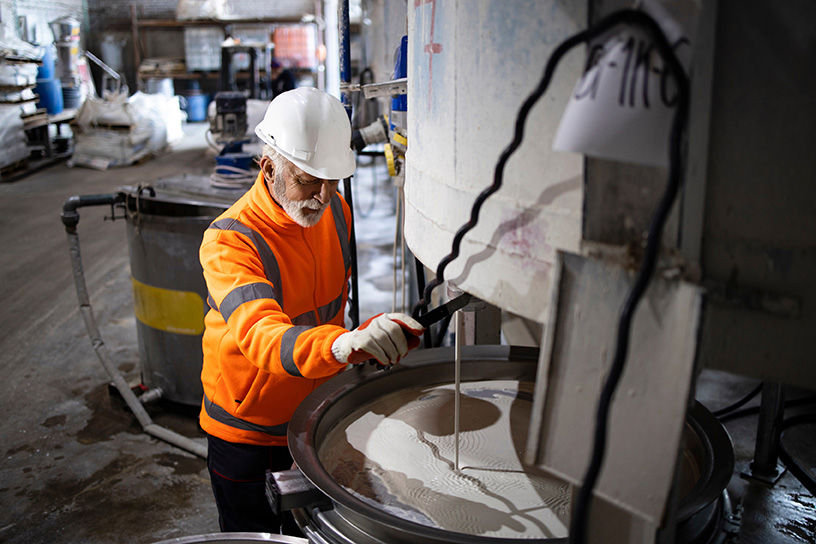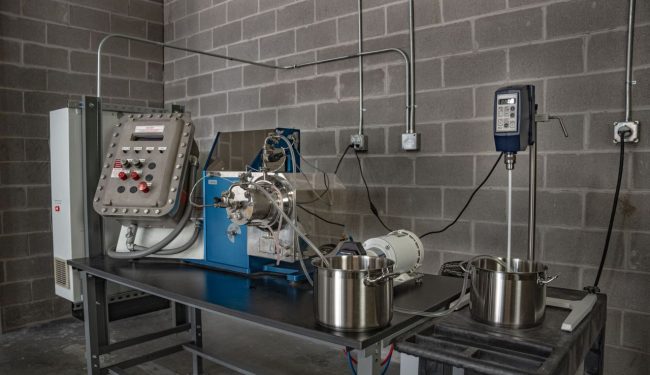
Selecting the Right Ceramic Materials of Construction for Equipment
Choosing the right ceramic material can make or break your equipment’s performance. From wear resistance to corrosion protection, ceramics like alumina, zirconia, and silicon carbide offer durability for demanding environments. Here’s how to select the best material.
Finding the Perfect Ceramic Material for Your Equipment
Are you dealing with high temperatures, corrosive environments, or heavy wear and tear? Or maybe you need something that offers precision machining and long-term durability? Ceramics come in all kinds of formulations, each designed to handle specific challenges.
By focusing on what your equipment demands (like strength, heat resistance, or chemical compatibility) you can narrow down your options and find a material that’s built to perform.
- High Hardness & Wear Resistance – Ceramics are ideal for abrasive environments, offering exceptional durability for components like pumps and valves.
- Thermal Stability – They maintain their strength and integrity even at elevated temperatures, making them reliable in high-heat applications.
- Chemical Corrosion Resistance – Ceramics withstand exposure to harsh substances like acids and alkalis, ensuring long-lasting performance in aggressive environments.
- Low Density – Their lightweight nature can reduce overall system weight, improving energy efficiency.
- Thermal Insulation – Ceramics’ low thermal conductivity helps manage heat transfer, adding efficiency to various equipment setups.
Considerations for Choosing Ceramic Materials
When you’re picking a ceramic material for your equipment, it’s not just about grabbing the toughest or most popular option. It’s about finding the perfect match between what the material can do and what your application needs. Here are a few things to keep in mind as you make your decision:
1. Consider Abrasion Resistance for Wear-Prone Equipment.
For equipment exposed to abrasive conditions, materials like alumina or silicon carbide are great options. These materials provide exceptional durability and are commonly used in pumps, mixers, and other high-wear components, reducing maintenance frequency.
2. Match the Material to Operating Temperatures.
If your equipment operates at high temperatures, materials like zirconia or silicon nitride are better suited. These ceramics retain their mechanical properties and structural stability even in extreme heat, making them ideal for applications like kilns and thermal barriers.
3. Look for Resistance to Chemical Corrosion.
In chemically aggressive environments, ceramics such as alumina or certain advanced composites provide the needed stability and durability. These materials resist degradation when exposed to acids, alkalis, or other reactive substances, making them a reliable choice for applications in harsh industrial settings.
Their non-reactive surfaces protect against corrosion, reducing maintenance needs and downtime. These ceramics maintain their structural integrity over time, ensuring a longer lifespan for components like pipes, tanks, and valves used in chemical processing or similar industries.
4. Choose Tough Ceramics for Stressful Conditions.
Some components face mechanical stress or impacts during operation. Zirconia is particularly valued for its superior toughness and crack resistance, making it a reliable choice for high-stress applications such as bearings and cutting tools.
5. Balance Performance with Budget Needs.
Advanced ceramics like silicon carbide or zirconia offer high performance but can be costly. Balancing material performance with budget constraints is key, especially when considering large-scale or high-volume applications. Alumina often provides an affordable alternative with good overall properties.
6. Address Unique Industry Demands.
Industries like food processing or pharmaceuticals may require ceramics with low porosity to prevent contamination and ensure hygiene. For example, ceramic rollers in food production lines are designed to resist moisture absorption and bacterial growth, maintaining sanitary conditions.
Similarly, pharmaceutical equipment, such as ceramic-lined mixers or grinders, prevents cross-contamination while ensuring precise and clean processing of active ingredients. Specialized coatings or treatments, such as glazing or polishing, can further improve the ceramic surface, enhancing compatibility with these highly regulated applications.

IntoCeramics specializes in professional ceramics consulting – contact us today to get started!
Popular Ceramic Materials for Construction
Several industrial ceramic materials are commonly used in equipment manufacturing:
- Alumina (Al₂O₃): A versatile ceramic known for its hardness, wear resistance, and chemical stability.
- Zirconia (ZrO₂): Offers exceptional toughness and thermal stability, making it ideal for high-stress applications.
- Silicon Carbide (SiC): Noted for its thermal conductivity and wear resistance, often used in high-temperature or abrasive environments.
- Silicon Nitride (Si₃N₄): Combines thermal stability with high strength, suitable for dynamic and high-temperature applications.
- Boron Carbide (B₄C): Lightweight and extremely hard, commonly used in wear plates and protective coatings.
IntoCeramics Expertise in Material Selection
IntoCeramics brings decades of experience to help clients select materials that match their unique needs. From testing to consultation, we help optimize equipment performance with the right ceramic solutions.
Custom Solutions for Your Equipment
We offer toll manufacturing services tailored to various industries, from material analysis to application recommendations. Whether you’re upgrading current equipment or designing new systems, we’re here to help you choose materials that improve durability and efficiency.
Contact us today to learn more about how we can support your project.